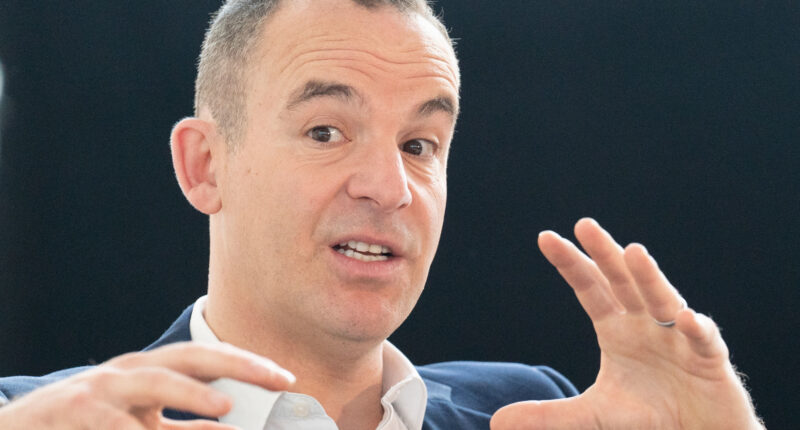MARTIN Lewis has issued a warning to families who might be missing out on a cash boost on their state pension.
The consumer champion explained how households can get “specified adult childcare credits” on the latest episode of his ITV Money Show.
The credits can top up your National Insurance record to help boost your state pension.
But they are only for grandparents or other family members who are taking care of kids instead of a parent.
Martin explained: “This is what I call the grandparents tax credit. It’s actually called adult credit.
“And what it means is if you’ve got kids under 12 and you go out to work and the grandparents look after them, you can shift the tax credits that you would’ve got for staying at home looking after your kids to the grandparents.


It can also be applied to other member of your family in a similar position, he said.
“It means if they don’t have full National Insurance when they retire it can help boost their state pension and add thousands,” he said.
What are specified adult childcare credits?
Specified adult childcare credits come from the government and are worth £275 a year.
They are issued to grandparents or other family members who are taking on childcare for the child’s parent.
Most read in Money
They count as National Insurance for those who don’t otherwise work.
This is important because you need at least 10 years’ worth of NI credits to qualify for the state pension, and at least 35 years’ worth to get it in full.
So if you are falling short on your NI contributions, it’s worth seeing if you are eligible for specified adult childcare credits.
Who is eligible?
The carer, so the grandparent or other family member, must be under the state pension age to claim adult childcare credits.
The child being cared for also has to be under 12, or 17 if they have a disability.
You have to live in England, Scotland, Wales and Northern Ireland.
However, you won’t qualify if you live on the Channel Islands or the Isle of Man.
Crucially, you will only be eligible if the child’s parent is entitled to child benefit and has a qualifying year for National Insurance without needing the parent’s class 3 national insurance credits which they receive automatically from child benefit.
You don’t have to have cared for the child for a certain amount of hours to apply.
And if you looked after your grandkids remotely during the multiple coronavirus lockdowns, you can also make a claim.
You can find out if you’ve got gaps in your National Insurance record by going on gov.uk.
How much can I claim?
How much you can claim depends on how long you’ve been looking after your grandchildren.
Each yearly credit it worth 1/35 of the value of the current state pension, which is around £275 a year.
You can also backdate claims from as far back as 2011.
That means if you’ve been looking after your grandkids since then you could get around £3,000 added to your state pension.
To work out what you could get, multiply £275 by the number of years you’ve been covering childcare.
How can I claim the credits?
You can apply for specified adult childcare credits on the government’s website via an application form.
You’ll need a couple of things to hand, including your personal details, the child’s personal details and how long they’ve been cared for, the child’s parent’s personal details.
Both the person applying for the credits and the parent have to sign a declaration on the application form too.
The process involves parents signing over their child benefit National Insurance credit to someone else.
Bear in mind, only one grandparent or family member can claim the credit and the credit isn’t per child, but per child benefit claimant.
But, that means if you claim child benefit for two children you can claim for effectively two National Insurance credits to be transferred across to you.
If you need help making an application, you can call the National Insurance helpline on 0300 200 3500.


In other news, thousands more families can now apply for up to £10,000 in benefit payments.
Plus, Chancellor Jeremy Hunt has hinted households won’t receive any significant new help from the government when bills rise in April.










